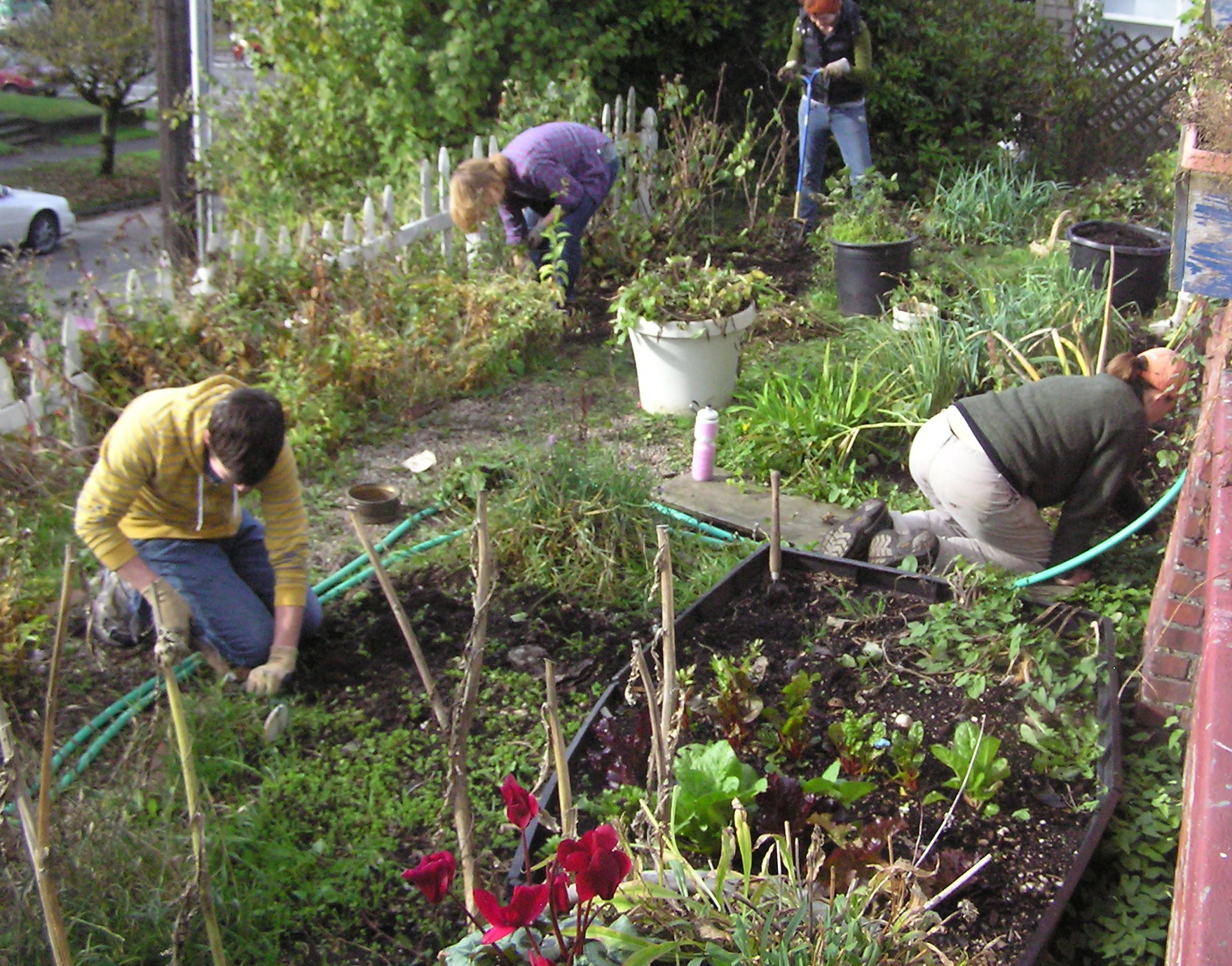Last week I was part of an exciting collaborative meeting. The Food and Faith Initiative of Seattle Tilth and the Interreligious Initiative of Seattle University School of Theology and Ministry drew together a group of local organizations to explore how we can inspire and educate our religious communities to better care for our environment and our communities by growing food to feed ourselves and neighbors. Many gardens on the grounds of religious communities already provide food for homeless/underprivileged meal programs, for example, while at the same time offering congregants, young and old, opportunities to cultivate their souls as they do the soil. However there is much more that we could do.
There are already a number of organizations here in the Seattle area that help to connect, educate and create gardens. Though many of them work only in the local area, their ideas and resources are wonderful for those concerned about these issues both across the U.S. and in fact around the world.
Seattle Tilth is one of the most inspirational organizations I know of for organic garden resources and education. Their Just Garden project helps build gardens, and educate gardeners in low income areas increasing access to fresh produce and improving health in the community. I love the way they engage youth in their work and nurture a culture of gardening for the generations to come.
I also love The Garden Hotline and the very useful leaflets they produce. Their new one – Growing Food in the City is great. Check out the others which can be downloaded for free from Seattle Utilities. Be sure to follow the links to brochures on rain water harvesting and composting.
Lettuce Links creates access to fresh produce, seed and gardens for low income families. They co-ordinate 64 P-patches around Seattle, harvest backyard fruit and help distribute it to food banks. Check out their great resource on giving gardens.
Earth Ministry works to educate individuals and congregations about lifestyle change and the need for environmental advocacy.
It was great to hear about some of the churches that already host community gardens often providing food for congregational meetings and homeless ministries. St Luke’s Ballard, St Columba’s Kent, Epiphany Episcopal, University Presbyterian and St James Cathedral are but a few of the churches that were represented.

